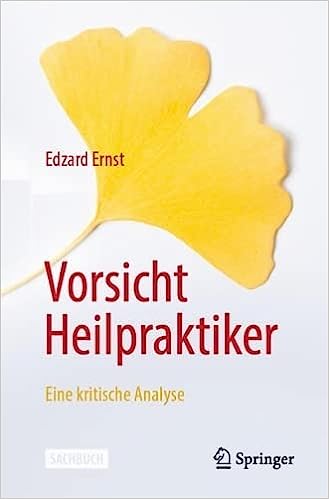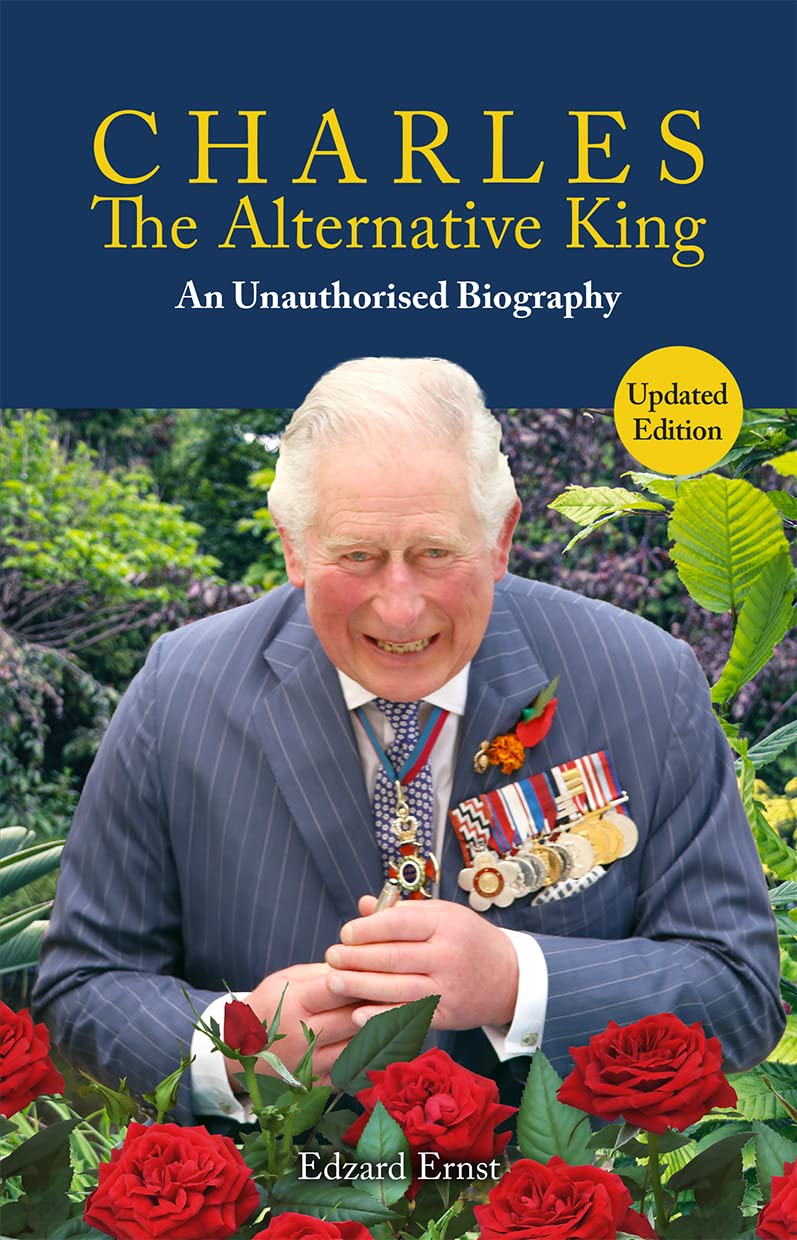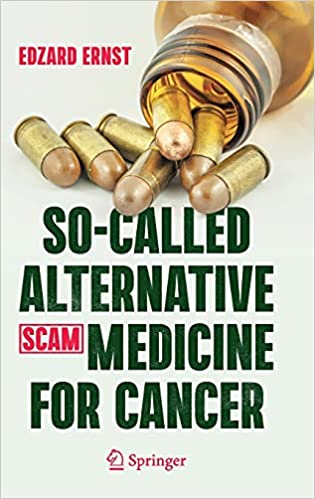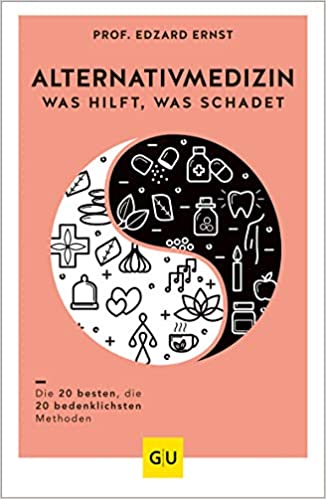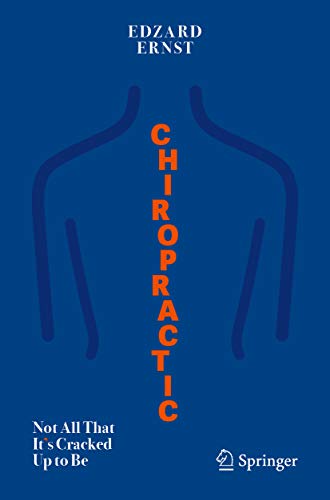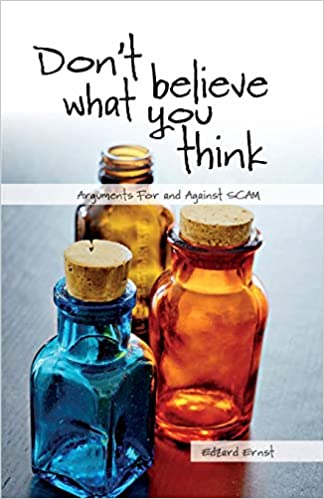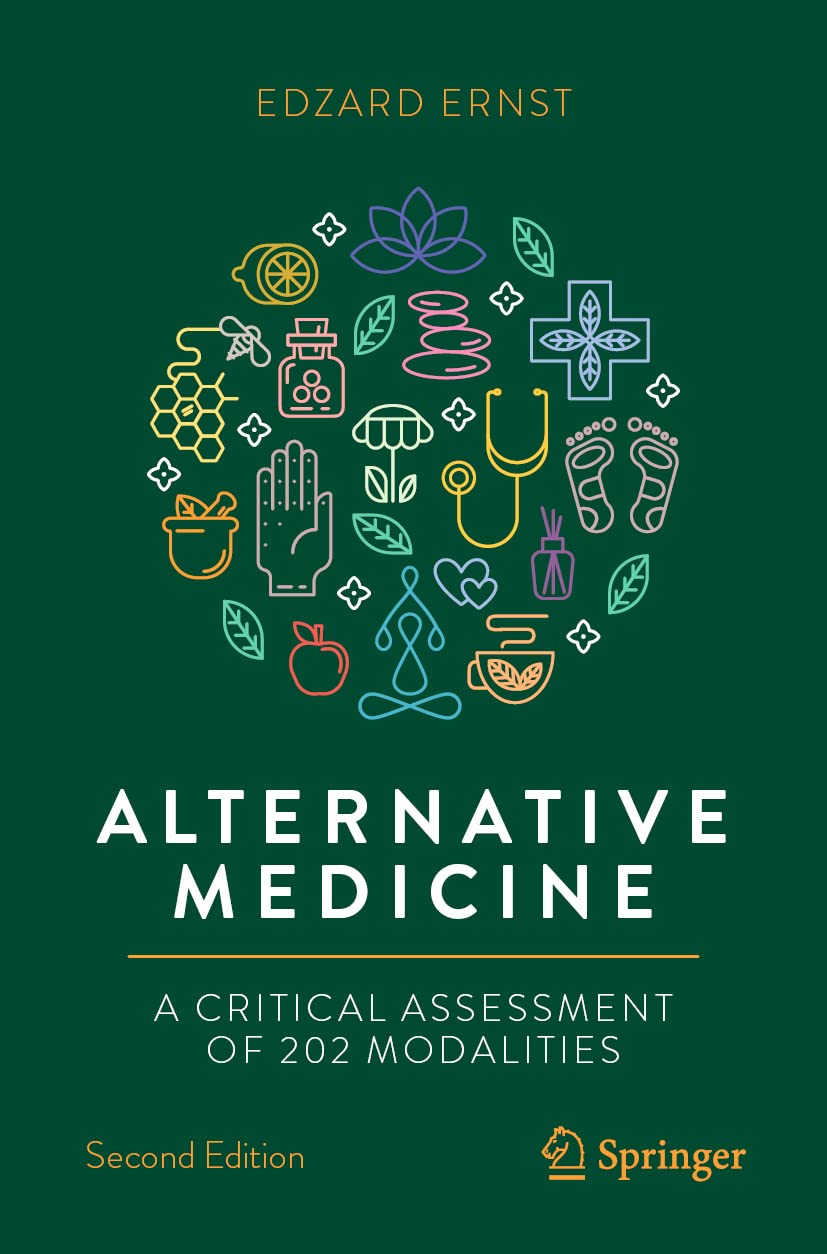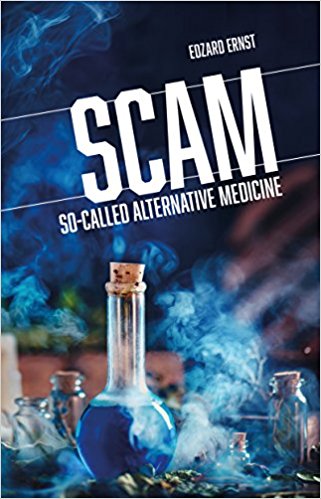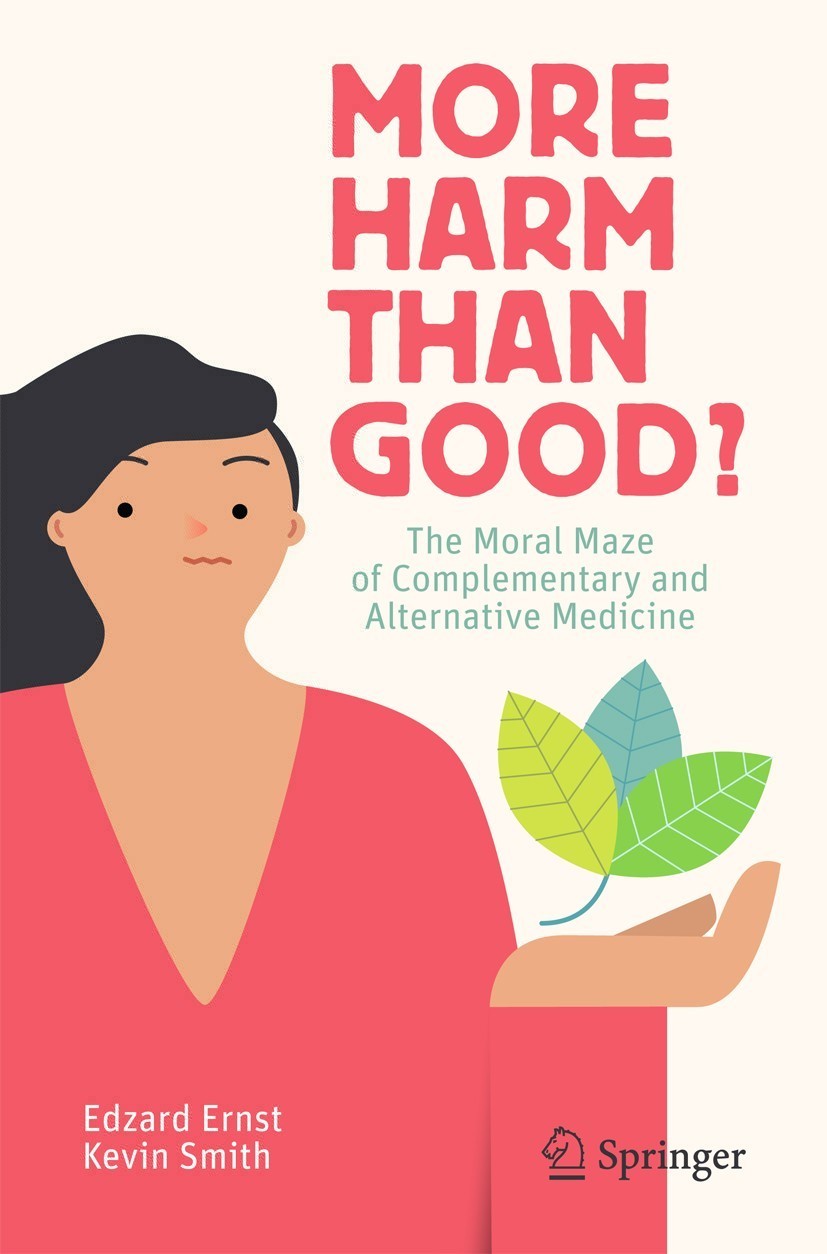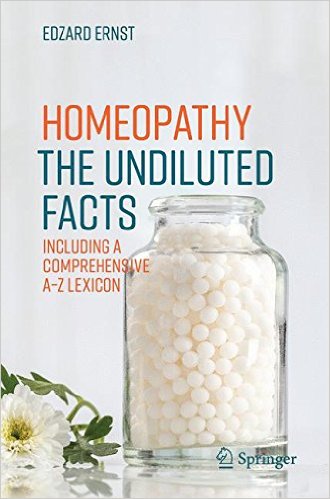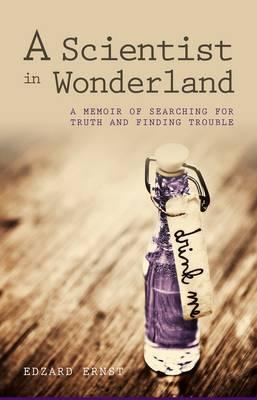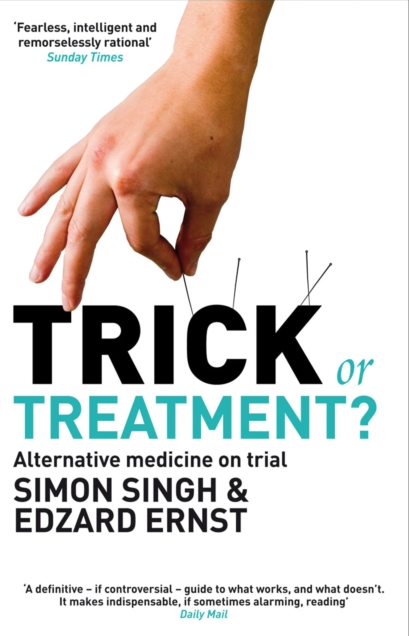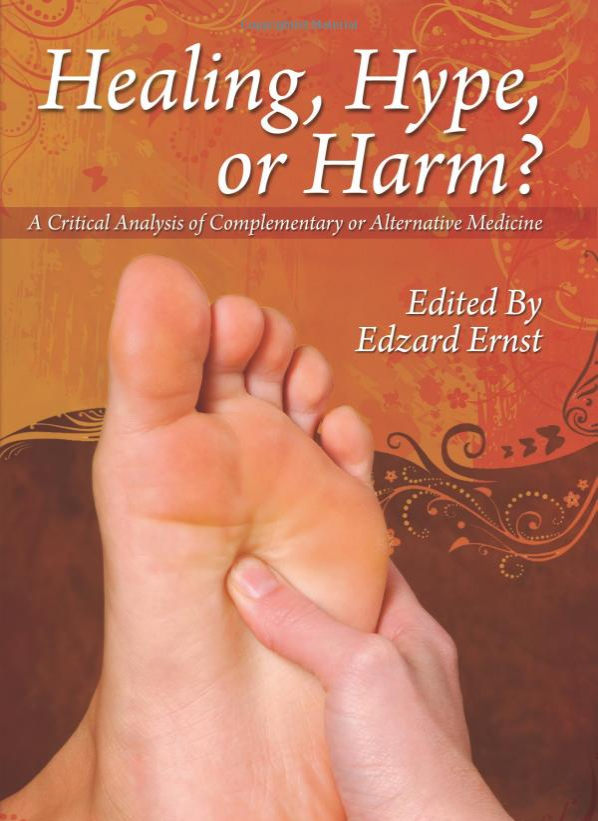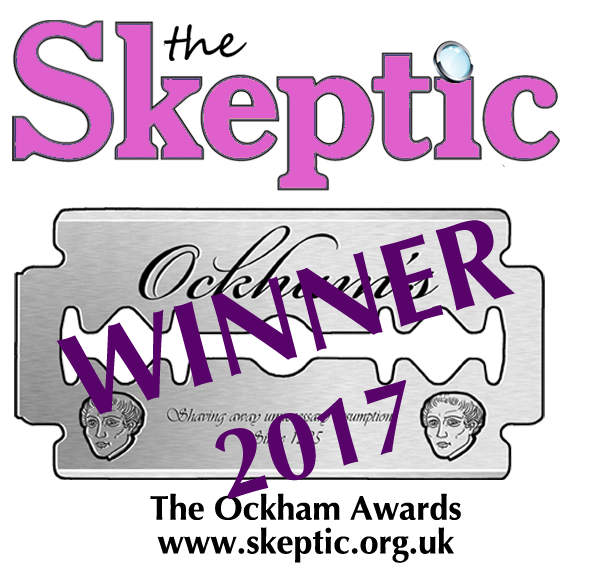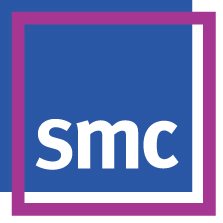Some time ago, we published a systematic review of adverse effects of homeopathic remedies. It prompted a spade of angry letters to the editor essentially claiming that homeopathic are so dilute that they cannot possibly cause problems. But they can! And here is another case in point.
It has been reported that, in Germany, several patients suffered from adverse effects such as visual disturbances and dry mouth after taking a homeopathic atropine remedy purchased from a pharmacy.
A 56-year-old man experienced taste and visual disturbances and drowsiness about 15 minutes after taking 30 drops of a homeopathic solution prepared at the pharmacy. Two further patients also experienced increased symptoms of malaise, slurred speech, dry mouth, hypertension, and dizziness after taking the homeopathic product. In each case, the symptoms improved one to two days after discontinuation of intake. In one case, the effects were observed again after repeated intake.
The pharmacy prepared the homeopathic prescriptions on the prescription of a Heilpraktiker. For this purpose, the pharmacy first diluted an Atropinum sulfuricum D4 dilution in a ratio of 1:10. The diluted solution was then added to three other OTC homeopathics. The proportion of the diluted solution was 50 percent (M/M) in each case.
Laboratory analyses found an increased atropine content of up to a factor of 800 in all the solutions tested. It was determined that the pharmacy’s manufacturing process was not the cause of the problem. The steps taken to produce the homeopathic remedy were demonstrably correct.
Eventually, the company that supplied the atropine solution discovered a mix-up: what was declared to be a D4 dilution was in fact the mother tincture of atropine, i.e. undiluted substance. The pharmacist had therefore used the mother tincture instead of the D4 dilution to prepare the formulations.
The story shows that, unsurprisingly, the quality control of homeopathic remedies can be deficient. When this happens, remedies that should contain nothing suddenly contain something. It is, I think, indisputable that this has the potential to harm patients. And this leads me to the conclusions that:
- homeopathic remedies are dangerous when they contain nothing because they leave illness untreated;
- homeopathic remedies are dangerous when they contain something because they may poison patients.
Rudy Giuliani, the former mayor of New York and legal advisor of Donald Trump, is already facing a billion-dollar lawsuit for defamation. He also had his license to practice law revoked by the New York Bar Association for spreading lies about the 2020 election. I therefore can imagine that he needs some cheering up and could do with some good news.
Well, Rudy, here it is!
Giuliani has been given a very special award.
In recognition of his truly outstanding achievements in dishonesty and his contribution to disinformation, Rudy Giuliani is the winner of the Center for Inquiry’s first Full of Bull Award!
A rogue’s gallery of celebrity hucksters was drawn up who best represent the threat posed by the wholesale rejection of reality. Calling out these infamous purveyors of flimflam and nonsense, the Center for Inquiry asked the public to vote for who was the worst offender.
It could not have been an easy choice, but now the voters have spoken: 41.7 percent of voters chose Giuliani over these other superspreaders of the infodemic:
- Friend to Viruses Robert F. Kennedy Jr.;
- The Human False Flag Alex Jones;
- The Snake Oil Profiteer Gwyneth Paltrow;
- Holy Hypocrite Jerry Falwell Jr.;
- The Mendacious Medium Thomas John.
Why Giuliani? He really gave his all to rise above the field over the past year as a dedicated champion of bogus COVID-19 cures at the peak of a global pandemic and chief spreader of the highly dangerous Big Lie about the 2020 election. “America’s Mayor” no more, Giuliani has slid to the fringes of conspiracy theories and quack medicine, truly embodying what it takes to be an all-around Full of Bull champion.
At the time of reporting, no reaction of the awardee was available. Yet, we can be confident that Rudy will treasure the award above all other distinctions and that he will display it prominently in his office. The Center for Inquiry wants to thank everyone for voting and for being a part of the reality-based community, it intends to remain committed to taking on bull artists of all stripes.
Germany has long been the ‘Promised Land’ for so-called alternative medicine (SCAM). For many years, about two-thirds of the general population has been reported to be regular SCAM users. Now, this seems about to change. A recent survey found that only one-third of Germans believe that homeopathy works as well as conventional medicine. The verdict on SCAM as a whole is similar: Only 35 percent of respondents would like SCAM to play a role in healthcare in addition to modern medicine. The results originate from an extensive representative survey commissioned by the GWUP and carried out by the KANTAR Institute to sound out attitudes toward esotericism and pseudoscience. The figure below depicts percentage figures of the belief in (from left to right) homeopathy, integrated medicine, spiritual healing, electrosmog, dowsing, clairvoyance, psychokinesis, ghosts, astrology, extra-terrestrials, none mentioned.
“It is a good sign for health care if two-thirds of the population reject dubious cures. The experience from the pandemic shows that we can only fight diseases with science and modern medicine,” stated Amardeo Sarma, chairman of GWUP. “I am pleased with the result because it also underlines the impact of our educational work. I’m convinced that we’re helping people make important decisions, removing uncertainty and, not least, preventing suffering caused by incorrect treatments.”
“As a physician, I am pleased when more and more people are concerned with their health and critically question promises of healing,” said Dr. Natalie Grams. “For me, the declining approval of homeopathy means that it is worthwhile to publicly stand by science and not be muzzled by industry interests. Fewer homeopathics mean more good medicine for patients that really works.”
This sounds like good news indeed. Yet, I think, we need to be careful and avoid jumping to conclusions because prevalence surveys are often not as reliable as they seem.
1) They frequently lack a clear definition of what is being surveyed. There is no generally accepted definition of alternative medicine, and even if the researchers address specific therapies, they run into huge problems. Take integrated medicine, for instance – some see this as alternative medicine, while others would, of course, argue that it is the integration of social and health care. Or take homeopathy – many consumers confuse it with herbal medicine.
2) The questionnaires used for such surveys are rarely validated. Essentially, this means that we cannot be sure they evaluate what we think they evaluate. We all know that the way we formulate a question can determine the answer. There are many potential sources of bias here, and they are rarely taken into consideration. It is therefore not surprising that different surveys report different prevalences. In Indonesia, for instance, an increase in SCAM use has been reported associated with the pandemic.
3) The typical survey has a low response rate; sometimes the response rate is not even provided or remains unknown even to the investigators. This means we do not know how the majority of patients/consumers who received but did not fill the questionnaire would have answered. Often there is good reason to suspect that those who have a certain attitude did respond, while those with a different opinion did not. This self-selection process is likely to produce misleading findings.
4) The typical survey has a long list of questions and reports only those results that the investigators find interesting or pleasing. Such selective reporting can introduce a significant bias that may not be detectable for the reader of the report.
I am sure the new survey is not seriously affected by any of these drawbacks. After all, it is from the GWUP, the Society of the Scientific Study of Para-Sciences. If they are not able to do good science, who is?
In the UK, a new post-Brexit regulatory framework is being proposed for food supplements by the government. The nutraceutical sector is estimated to be worth £275bn globally and £4bn in the UK. A new report claims that “science is starting to point the way to a new sector of nutritional products with increasingly explicable and/or verifiable medicinal benefits, which needs to be reflected in our regulatory framework.” Tory MP George Freeman, one of the authors of the report, was quoted saying:
“We are living through an extraordinary period of technological change – not just in life science but in host of sectors: from AI to robotics to agri-tech, nutraceuticals, nanotechnology, synthetic biology, biofuels, satellites and fusion energy. The UK is indeed a ‘science superpower’. But we have traditionally been woeful at commercialising here in the UK. There are many reasons. But, in recent years, the EU’s increasingly slow, bureaucratic and ‘precautionary’ approach – copied in Whitehall – has made the EU and the UK an increasingly poor place to commercialise new technology.”
If a product like a food or a herbal remedy makes ‘medicinal’ claims, it is currently regulated by the MHRA. If a product only makes general ‘health’ claims, it is regulated by the Department of Health and Social Care in England, by the FSA in Wales and Northern Ireland, and by Food Standards Scotland in Scotland. This ‘patchwork of regulators’ is bound to change as it is deemed to create additional costs and uncertainty for businesses who would like to see the relevant functions brought together in a central regulatory body and a clearer UK landscape.
In response to the task force’s report, PM Boris Johnson stated that bold and ambitious ideas such as these are needed to encourage growth and innovation:
“The Government, through our Better Regulation Committee, is already hard at work on reform of the UK’s regulatory framework. Your bold proposals provide a valuable template for this, illustrating the sheer level of ambitious thinking needed to usher in a new golden age of growth and innovation right across the UK. So we will give your report the detailed consideration it deserves, consult widely across industry and civil society, and publish a response as soon as is practicable.”
Am I the only one who feels more than a little uneasy about all this? I honestly do not see much new science that, according to the report, points to ‘verifiable medicinal benefits’ of food supplements or nutraceuticals. What the report does however point to, I fear, is that the UK government is about to deregulate quackery with a view to making some entrepreneurs wealthy snake oil salesmen at the cost of public health and wealth.
I hope I am mistaken.
RNZ reported that New Zealand doctors spreading misinformation about Covid-19 may lose their job. Medical Council chair Dr Curtis Walker said a small number of doctors were peddling conspiracies. “It’s questioning the severity of Covid, it’s questioning the safety of vaccination, it’s questioning whether the whole thing is a conspiracy theory. You know you name it, this is what’s been put out there.”
The council has received 13 complaints about medical staff from the public this year – although that included instances of multiple complaints about the same doctor. It comes after it was reported last month that dozens of heath professions, including GPs, signed an open letter opposing the Pfizer vaccine.
Dr Walker said an independent body was investigating to decide if charges should be laid with the Health Practitioners Disciplinary Tribunal. Doctors have a professional duty to provide advice based on evidence, he said. “There’s a mountain of evidence out there of how effective and safe the Covid vaccine is. And we’ve already seen the alternative of unvaccinated populations where millions have died.” Walker said doctors were particularly respected members of the community and their opinions about health carried extra weight. Any found spreading misinformation could potentially lose their jobs and the right to practice medicine.
NZ Royal College of General Practitioners president Dr Samantha Murton said while people could choose not to get vaccinated there were serious consequences if the virus breached the borders. “If those vulnerable people are being given misinformation, they may choose to do something that’s really detrimental to their health. What worries me the most is the poorer people, the people who are at higher risk. If they’re getting this … misinformation then it’s potentially putting their lives in jeopardy.”
Kate Hannah, who researches misinformation at the University of Auckland, said anyone could be sucked in – including highly educated people such as doctors. Most misinformation originated overseas – with people here adapting it to target particular demographics, she said. “And in doing so it targets people’s lived experiences of things like racism in the health system or racism more broadly, or say women’s experiences of the health system where they may have experiences of previously not being listened to.”
Ways to spot misinformation included if someone was trying to sell you something; was asking for donations; or the information was presented to elicit an emotional reaction. “If it’s written in a way that makes you feel upset or scared, or nervous or fearful, you know that’s not normally how we convey good quality public health information. Good quality public health information should provide you with information and make you feel reassured and calm and like you can make good decisions.” Other red flags included asking for personal information or to sign up to receive regular updates – ways to separate you from your current community or sources of information, Hannah said. Covid conspiracies could act as as a gateway, exposing people to online communities espousing far right ideology, misogyny, racism and transphobia, she said.
__________________________
Willful misinformation about a serious health matter amounts to a violation of medical ethics. It, therefore, stands to reason that healthcare professionals who engage in such activities should be reprimanded. If that is so, it applies not just to COVID-19 but to any medical misinformation. Moreover, I should not just apply to doctors, but to all healthcare professionals.
If we do this systematically, it would mean that also providers of so-called alternative medicine (SCAM) might get struck off their professional register, if they make unsubstantiated claims in cases of serious illnesses.
Not realistic, you say?
Why not? After all, medical ethics cannot be bent to protect the interests of SCAM professionals.
WHAT DO YOU THINK?
I have repeatedly reported about what has been happening with homeopathy in France. For many decades, it had a free ride. Things began to change some 10 years ago.
- In 2014, our book was published in French. I might be fooling myself, but I do hope that it helped to start a ball rolling.
- Subsequently, French skeptics began raising their voices against quackery in general and homeopathy in particular.
- In 2015, Christian Boiron, boss of Boiron, stated about people opposing homeopathy that “Il y a un Ku Klux Klan contre l’homéopathie” THERE IS A KU KLUX KLAN AGAINST HOMEOPATHY”.
- In 2018, 124 doctors published an open letter criticizing the use of so-called alternative medicine (SCAM).
- In the same year, the Collège National des Généralistes Engseignants, the national association for teaching doctors, pointed out that there was no rational justification for the reimbursement of homeopathics nor for the teaching of homeopathy in medical schools, and they stated bluntly that it is necessary to abandon these esoteric methods, which belong in the history books.
- Also in 2018, the University of Lille announced its decision to stop its course on homeopathy. The faculty of medicine’s dean, Didier Gosset, said: It has to be said that we teach medicine based on proof – we insist on absolute scientific rigor – and it has to be said that homeopathy has not evolved in the same direction, that it is a doctrine that has remained on the margins of the scientific movement, that studies on homeopathy are rare, that they are not very substantial. Continuing to teach it would be to endorse it.
- In 2019, the French Academies of Medicine and Pharmacy published a document entitled ‘L’homéopathie en France : position de l’Académie nationale de médecine et de l’Académie nationale de pharmacie’. It stated that L’homéopathie a été introduite à la fin du XVIIIe siècle, par Samuel Hahnemann, postulant deux hypothèses : celle des similitudes (soigner le mal par le mal) et celle des hautes dilutions. L’état des données scientifiques ne permet de vérifier à ce jour aucune de ces hypothèses. Les méta-analyses rigoureuses n’ont pas permis de démontrer une efficacité des préparations homéopathiques. The academies concluded that no French university should offer degrees in homeopathy, and that homeopathy should no longer be funded by the public purse: “no homeopathic preparation should be reimbursed by Assurance Maladie [France’s health insurance] until the demonstration of sufficient medical benefit has been provided. No university degree in homeopathy should be issued by medical or pharmaceutical faculties … The reimbursing of these products by the social security seems aberrant at a time when, for economic reasons, we are not reimbursing many classic medicines because they are more or less considered to not work well enough …”
- Only weeks later, the French health regulator (HAS) recommended with a large majority the discontinuation of the reimbursement of homeopathic products.
- The health minister, Agnès Buzyn, announced “Je me tiendrai à l’avis de la Haute Autorité de santé”.
- Consequently, the powerful French homeopathy lobby mounted political pressure, including a petition with over 1000000 signatures.
- President Macron allegedly was hesitant and considered a range of options, including a reduction of the percentage of reimbursement.
- Apparently, the minister stood up for science and, as rumored, even put her job on the line.
- In July 2019, she announced the end of reimbursement and was quoted saying “J’ai toujours dit que je suivrais l’avis de la Haute Autorité de santé (HAS), j’ai donc décidé d’engager la procédure de déremboursement total“
Since then, homeopathy has indeed been banned from reimbursement. Here is a short update on the current situation: 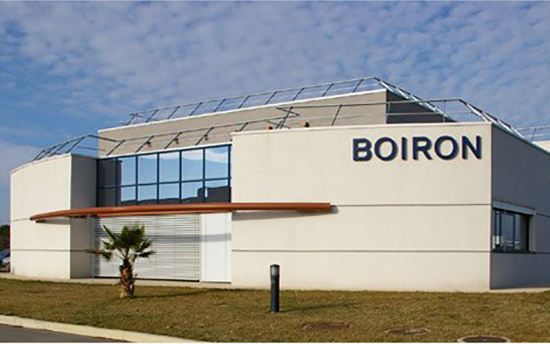
After the disengagement of the French Social Security system, the world leader in homeopathy has been trying to convince complementary health insurance companies to take up the torch of large-scale reimbursement. Its seduction operation includes a third-party payment solution to boost sales.
From 1 January 2021, homeopathy is no longer reimbursed by Social Security. In March 2020, Boiron, the largest producer of homeopathics, began a restructuring that led to the loss of 560 jobs in France and the closure of one-third of its 31 production and distribution sites. On Thursday, the site of Chauray (Deux-Sèvres) closed after 33 years of activity.
… The CEO of Boiron, Valérie Lorentz-Poinsot, does not have words strong enough to describe the decision of the former Minister of Health, Agnès Buzyn, to delist homeopathy. Since the view issued in June 2019 by the French Health Authority (HAS) noting the ineffectiveness of 1,100 of these products previously reimbursed by the French health service, the reimbursement of homeopathics was reduced from 30% to 15% in 2020, then to 0% on 1 January 2021.
PS
Oh, I almost forgot to mention: the stocks in Boiron roughly halved during the last 3 years
S0-called alternative medicine (SCAM) is often promoted for improving the quality of life (QoL) of cancer patients. Women with early-stage breast cancer often opt for trying SCAM. One such option is vitamin C. Its effectiveness in cancer treatment remains, however, unproven. On this background, this first-ever randomized clinical trial aimed to explore the effects of intravenous vitamin C (IVC) on symptoms and adverse events associated with conventional breast cancer treatment.
This single-center, parallel-group, single-blind study was conducted in the oncology ward of a tertiary care hospital in Pakistan. After informed consent, breast cancer patients with Union for International Cancer Control stages IIA to IIIb were included in the study. Three hundred and fifty patients were randomized into two groups at a ratio of 1:1. The study group received 25 grams per week of IVC at a rate of 15 grams per hour for four weeks in addition to their current standard treatment, and the control group received a placebo in addition to their current standard treatment.
In patients who had received IVC, there were significant decreases in the severity scores after 28 days for the following symptoms:
- nausea, loss of appetite (2.26 ± 0.51 vs. 2.11 ± 0.52; p-value: 0.007),
- tumor pain (2.22 ± 0.45 vs. 1.99 ± 0.40, p-value: <0.0001),
- fatigue (3.11 ± 0.32 vs. 2.87 ± 0.29; p-value: <0.0001),
- insomnia (2.59 ± 0.35 vs. 2.32 ± 0.36, p-value: <0.0001).
The authors concluded that this study shows an improvement in the mean severity score of nausea, fatigue, tumor pain, loss of appetite, and fatigue. More studies are also needed to assess the long-term effects of IVC in the cancer management. This shall help incorporate the use of IVC in standard practice to make the journey of cancer management comfortable for the patients.
This new study does not stand alone. A 2014 review summarised three prospective studies as well as case reports and retrospective studies concluding that intravenous (IV) vitamin C alleviates a number of cancer- and chemotherapy-related symptoms, such as fatigue, insomnia, loss of appetite, nausea, and pain. Improvements in physical, role, cognitive, emotional, and social functioning, as well as an improvement in overall health, were also observed.
What about the mechanism of action? The authors of the new study offer the following explanation:
The role of vitamin C in reducing symptoms in cancer patients can be explained by its antioxidant properties. It is known that radiation and chemotherapy along with tumor cell metabolism increase oxidative stress in cancer patients. This stress is combated by the intrinsic antioxidants of the body including vitamin C. It is seen that patients with cancer have low levels of vitamin C in their bodies. This is because uncontrolled oxidative stress in cancer leads to high consumption of intrinsic body reserves resulting in vitamin C depletion. If not replenished duly, this deficiency eventually leads to the unopposed production of reactive oxygen species (ROS). The gut mucosa and the neural tissues, being the most sensitive to ROS, are affected the most. This leads to mucosal irritation of the gastrointestinal tract causing symptoms of nausea, vomiting, and loss of appetite. The neural irritation may trigger mental disorders including insomnia, tumor pain, and fatigue. Thus, replenishment of the intrinsic reserve by parenteral vitamin C administration may help combat the unopposed ROS production and play a vital role in alleviating cancer symptomatology, and hence QoL in these patients, as witnessed in our current study.
This explanation may be somewhat simplistic; moreover, the new study is far from flawless, and the totality of the evidence seems less than compelling. Nonetheless, the subject is, in my view, interesting and would seem to deserve further rigorous study.
This study describes the use of so-called alternative medicine (SCAM) among older adults who report being hampered in daily activities due to musculoskeletal pain. Cross-sectional European Social Survey (EES) Round 7 (2014) data from 21 countries were examined for participants aged 55 years and older, who reported musculoskeletal pain that hampered daily activities in the past 12months. From a total of 35,063 individuals who took part in the ESS study, 13,016 (37%) were aged 55 or older; of which 8183 (63%) reported the presence of pain, with a further 4950 (38%) reporting that this pain hampered their daily activities in any way.
Of the 4950 older adult participants reporting musculoskeletal pain that hampered daily activities, the majority (63.5%) were from the West of Europe, reported secondary education or less (78.2%), and reported at least one other health-related problem (74.6%). In total, 1657 (33.5%) reported using at least one SCAM treatment in the previous year. Manual body-based therapies (MBBTs) were most used, including massage therapy (17.9%) and osteopathy (7.0%). Alternative medicinal systems (AMSs) were also popular with 6.5% using homeopathy and 5.3% reporting herbal treatments. A general trend of higher SCAM use in younger participants was noted.
SCAM usage was associated with
- physiotherapy use,
- female gender,
- higher levels of education,
- being in employment,
- living in West Europe
- having multiple health problems.
The authors concluded that a third of older Europeans with musculoskeletal pain report SCAM use in the previous
12 months. Certain subgroups with higher rates of SCAM use could be identified. Clinicians should comprehensively and routinely assess SCAM use among older adults with musculoskeletal pain.
Such studies have the advantage of large sample sizes, and therefore one is inclined to consider their findings to be reliable and informative. Yet, they resemble big fishing operations where all sorts of important and unimportant stuff is caught in the net. When studying such papers, it is wise to remember that associations do not necessarily reveal causal relationships!
Having said this, I find very little information in these already outdated results (they originate from 2014!) that I would not have expected. Perhaps the most interesting aspect is the nature of the most popular SCAMs used for musculoskeletal problems. The relatively high usage of MBBTs had to be expected; in most of the surveyed countries, massage therapy is considered to be not SCAM but mainstream. The fact that 6.5% used homeopathy to ease their musculoskeletal pain is, however, quite remarkable. I know of no good evidence to show that homeopathy is effective for such problems (in case some homeopathy fans disagree, please show me the evidence).
In my view, this indicates that, in 2014, much needed to be done in terms of informing the public about homeopathy. Many consumers mistook homeopathy for herbal medicine (which btw may well have some potential for musculoskeletal pain), and many consumers had been misguided into believing that homeopathy works. They had little inkling that homeopathy is pure placebo therapy. This means they mistreated their conditions, continued to suffer needlessly, and caused an unnecessary financial burden to themselves and/or to society.
Since 2014, much has happened (as discussed in uncounted posts on this blog), and I would therefore assume that the 6.5% figure has come down significantly … but, as you know:
I am an optimist.
I believe in progress.
Homeopathy is sometimes claimed to be effective for primary dysmenorrhoea (PD), but the claim is not supported by sound evidence. This study was undertaken to examine the efficacy of individualized homeopathic medicines (IH) against placebo in the treatment of PD.
A double-blind, randomized, placebo-controlled trial was conducted at the gynecology outpatient department of Mahesh Bhattacharyya Homoeopathic Medical College and Hospital, West Bengal, India. Patients were randomized to receive either IH (n=64) or identical-looking placebo (n=64). Primary and secondary outcome measures were 0-10 numeric rating scales (NRS) measuring the intensity of pain of dysmenorrhea and verbal multidimensional scoring system (VMSS) respectively, all measured at baseline, and every month, up to 3 months.
The two groups were comparable at baseline. The attrition rate was 10.9% (IH: 7, placebo: 7). Differences between groups in both pain NRS and VMSS favored IH over placebo at all time points with medium to large effect sizes. Natrum muriaticum and Pulsatilla nigricans were the most frequently prescribed medicines. No harms, serious adverse events, or intercurrent illnesses were recorded in either group.
The authors concluded that homeopathic medicines acted significantly better than placebo in the treatment of PD. Independent replication is warranted.
A previously published RCT could not show any significant effect of homeopathy on primary dysmenorrhea in comparison with placebo. The authors of the new study claim that the discrepant findings might be due to the fact that IH requires great skill. In other words, negative studies are according to this explanation negative not because homeopathy does not work but because the prescribers are not up to it. Such notions have often been voiced on this blog and elsewhere and are used as a veritable ‘get-out clause’ for homeopathy: ONLY THE POSITIVE RESULTS ARE VALID! Consequently, systematic reviews of the evidence must only consider positive trials. And this, of course, means that the findings are invariable positive.
I find this more than a little naive and would much prefer to wait for an independent replication where ‘independent’ means that the trial is run by experts who are not advocates of homeopathy (as in the present trial).
According to one website, electromagnetic fields (EMFs) are “the new smoking“:
For decades, a group of cigarette companies referred to as ‘Big Tobacco’ financed bogus scientific studies claiming smoking was perfectly safe. This tricked doctors, scientists, politicians, and smokers into a false sense of security. There were early warning signs that smoking was dangerous, but it took 50 years for the government to finally take action. Today we’re facing an even bigger health threat… EMFs. Even if many doctors, politicians and Big Wireless still claim that EMFs are perfectly safe, the early warning signs could not be clearer:
- Many leading EMF scientists say EMFs should be classified as a “Class 1” definite carcinogen (just like smoking and asbestos)
- The best functional medicine doctors like Dr. Dietrich Klinghardt, MD, PhD have observed that EMFs are at the very root cause of “Mystery” symptoms including insomnia, fatigue, depression, and digestive issues.
- New technologies like the “5G” (fifth generation) networks are being rolled out at a frantic pace, while exactly ZERO biological studies prove their safety.
- EMF “safety” standards haven’t been updated since 1996, and are based on short-term exposure to ONE device.
The Atox Bio Computer is one of many devices marketed as the solution. It is a little device that supposedly protects any person who is gullible enough to buy it from electrosmog and other EMFs. It was developed by the Russian physicist, Alexander Tarasov. Worn around the neck, the device allegedly acts by “converting negative information into positive”. Alarmingly, the Atox is also promoted as protection against ionizing radiation. Pseudo-scientific explanations are given for the mode of action, in which there is talk of an ominous “energy-information component” of radiation: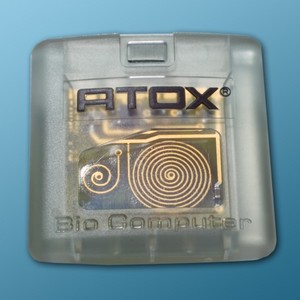
“The revolutionary insight of Dr. Tarasov is that any electromagnetic radiation of any origin consists of two components, the physical and the energy-information component. Whereby the energy-information component precedes the physical vibration and primarily affects the human organism or its bioenergetic field.”
Sounds weird? Yes, I agree! But it must be true because it is supported by a real professor from a leading medical school. In 2007, it was reported in a press release that Prof. Dr. Michael FRASS examined the ATOX Bio Computer and found that 90% of people with too low and 100% with too high initial values achieved normalization of their vegetative performance. Altogether, 92.9% of the persons benefited by wearing the ATOX biocomputer.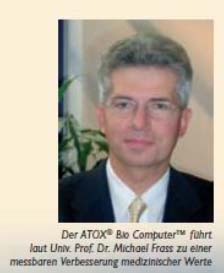
With regard to the ratio of sympathetic to parasympathetic impulses, 100% of the people with too low and 82.3% with too high initial values normalize their range of the total autonomic power. Overall, 84.2% of the treated individuals showed a positive course under the influence of ATOX biocomputer. According to Frass, this means that people with a high stress factor have a very high probability of returning to normal values of the autonomic system with the help of the ATOX biocomputer.
Considering the fact that such findings, if true, would necessitate to re-write large parts of the textbooks of physics and medicine, it is surprising that Frass does not include them in his CV. Perhaps he is a deeply modest scientist? Or maybe he does not want to spoil his chances for a Nobel?
Prof. Frass has, of course, featured on this blog before. For instance, because his many studies of homeopathy are invariably positive, or because his results have been shown to contain a few (pro-homeopathy) ‘errors’, or (most recently) because he published a trial of homeopathy that claimed lung cancer patients live longer if they are treated with homeopathy. The latter study is now under investigation for fraud.
Had such an investigation been initiated in back 2007 when Frass came out with his ATOX Bio Computer study (which incidentally was never properly published [at least I could not find it on Medline]), we would now not need to worry whether some desperate cancer patients did take Frass’ ‘science’ seriously.
